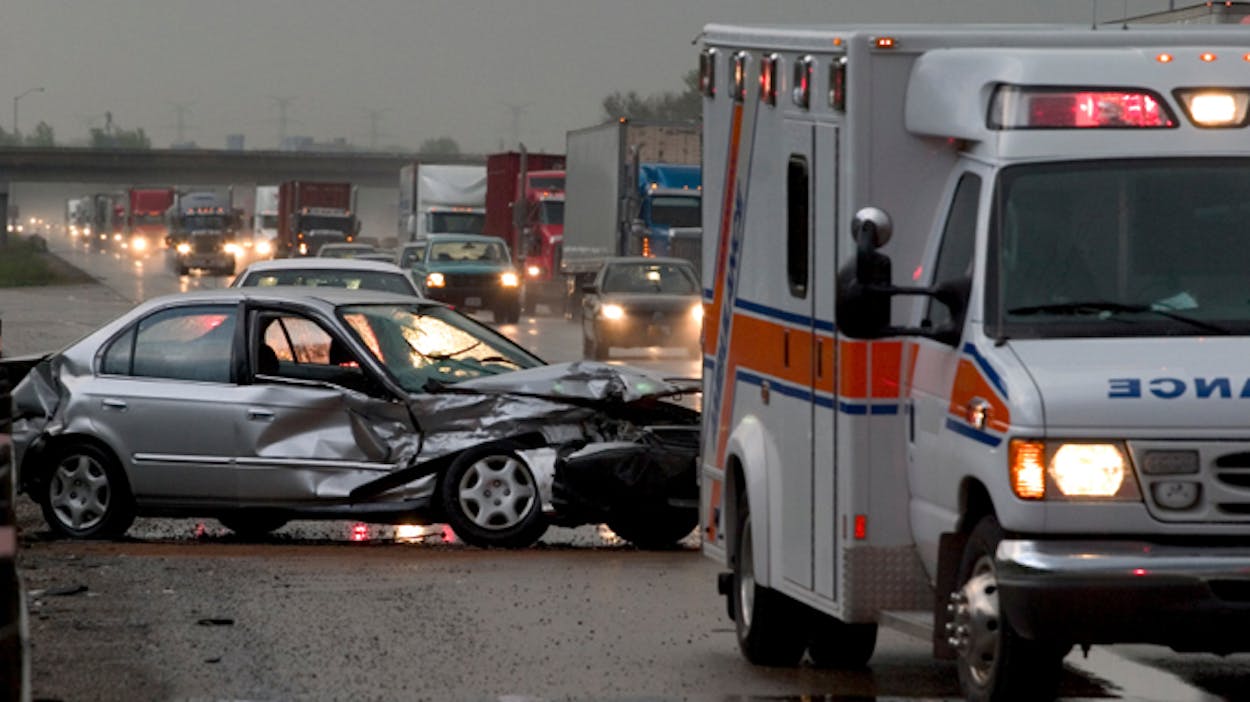Texas is notoriously averse to taxation. The state legislature hasn’t voted on a tax increase since 1991, as Paul Burka notes in his piece about the “T-word.” Some local governments have started getting creative to make ends meet. One example: a Houston suburb plans to tax drivers who are at fault in auto collisions.
Missouri City’s Fire Department will begin charging the so-called “crash tax” to respond to traffic accidents starting March 1, wrote Drew Karedes for KHOU News. The fee can range anywhere from $500 to $2000 depending on the severity of the wreck. How would such services be priced? Similar statewide fees that were proposed in California were listed as: $435 for basic scene stabilization, $1,875 for Jaws of Life extractions, and $2,275 for an airlift to a hospital, wrote Texas journalist Kay Bell in 2010. (In 2011, NPR reports, Petaluma, California was charging $435 for a basic engine response, and up to $2,500 for more involved action, plus a $60 environmental clean-up fee.)
Would such fees discourage drivers from dialing 911? Missouri City will charge its crash fees even if drivers don’t call for assistance. This really irks some Texans who have witnessed superfluous response efforts on Texas roadsides. “I think of how often they show up. I see them show up and everyone’s walking around,” Missouri City resident Meredith Johnson told KHOU. “I’m freaking out.”
Drivers aren’t the only ones freaking out. Ten states–Alabama, Arkansas, Florida, Georgia, Indiana, Louisiana, Missouri, Oklahoma, Pennsylvania, and Tennessee–have already passed legislation prohibiting accident response fees, and four other states have limited their use, according to AccidentResponseFees.com.
More than 50 cities in 26 states have already imposed such a fee, wrote FoxNews.com. Some municipalities are looking to these sorts of fee-for-service taxes to make up for budget shortfalls. A similar tax was instituted in Fraser, Michigan in 2011, and local authorities told the Associated Press that it was necessary. “We’re not out here trying to make additional revenue,” said Fraser city manager Richard Haberman. “We’re just trying to cover costs.”
However, Fire Chief Russell Sander told KHOU that drivers should not be too alarmed because the bill will be sent to insurance companies. “They’re not going to see something sent to their house,” said Sander. “I don’t think they’re going to see much differences in our services or their cost that’s out of their pocket.”
That sounds reassuring, but police and fire department officials do not control the policies of insurance companies. In California, where similar fees have already been implemented, some insurance companies have refused to pay.
Sam Sorich, president of the Association of California Insurance Companies, told NPR that auto policies aren’t designed to accommodate such charges. “Typical insurance policy covers injuries and damage to property,” said Sorich. “What these fees are is the cost of the fire department to come to the scene of the accident.” In other words, insurance companies will pass additional charges along to its customers. “It adds to our cost of doing business,” said Sorich. “We’ll have to adjust the price of our product.”
Ultimately, it seems that drivers deemed at fault will foot the bill for emergency responders. Some taxpayers are under the impression that they had already covered such expenses. “Don’t we pay them to do that already?” asked Johnson.






